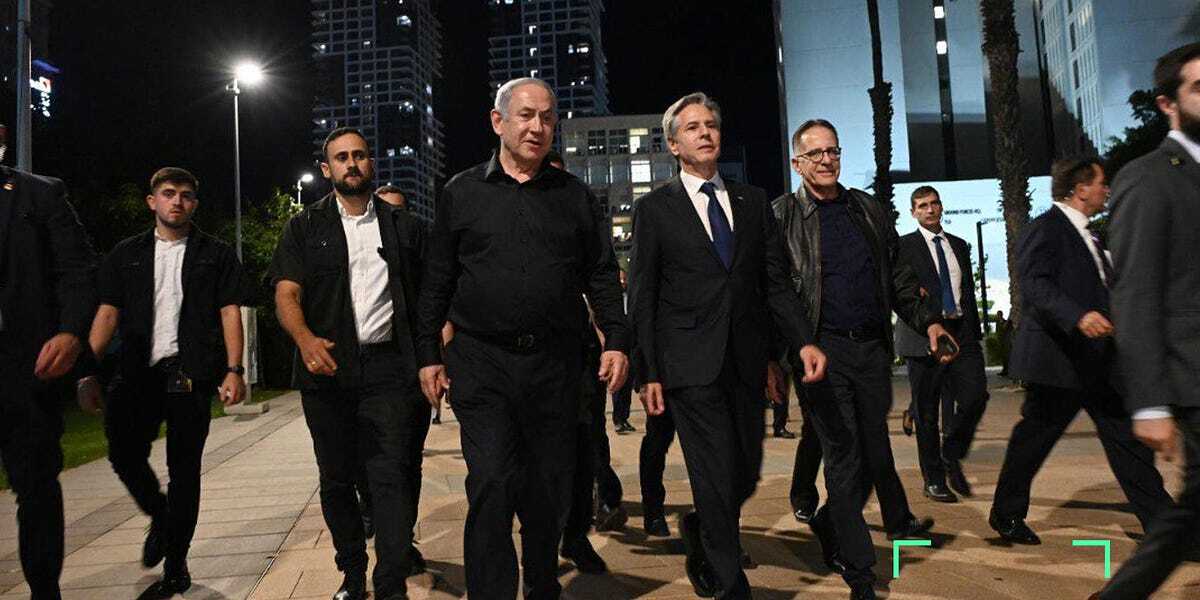The following day, after an additional round of Cabinet meetings, this time helmed by both Blinken and Biden, an outline of the decision was publicly announced by Prime Minster’s Netanyahu’s office: “We will not allow humanitarian assistance in the form of food and medicines from our territory to the Gaza Strip” and, in a separate Hebrew version, “In light of President Biden’s demand, Israel will not thwart humanitarian supplies from Egypt as long as it is only food, water and medicine for the civilian population located in the southern Gaza Strip or moving there, and as long as these supplies do not reach Hamas. Any supplies that reach Hamas will be thwarted.” The Hebrew word לסכל, “to thwart,” is frequently used by Israel to describe targeted killings and assassinations. The previous policy of “thwarting” all humanitarian supplies from entering Gaza was conveyed to Egypt as an explicit threat to “bomb” aid trucks.
The substance of the Blinken-approved policy was starkly conveyed by Security Cabinet member Bezalel Smotrich, who later told the Israeli media: “We in the cabinet were promised at the outset that there would be monitoring, and that aid trucks hijacked by Hamas and its organizations [sic] would be bombed from the air, and the aid would be halted.”
State Department spokesperson Vedant Patel told Drop Site News: “The suggestion that anyone at the State Department signed off in any way on attacks on humanitarian workers or convoys is absurd. We have always been clear, including in the immediate aftermath of October 7, that Israel has the right to strike Hamas militants. Secretary Blinken has been equally clear that Israel needs to ensure that humanitarian aid is delivered to Gaza and that humanitarian workers inside Gaza are protected.” The State Department did not clarify whether it approved carrying out airstrikes against Hamas militants (or those indiscriminately classified as militants) who secure aid convoys or seize their contents.



None of it is ‘clear’, and of course we don’t ‘know’. The question is what on earth you have on your list of reasons to give Antony Blinken the benefit of the doubt.
I’d love to know what it is about his record in office that inspires such trust.
Honestly, the level of fawning obsequiousness to the government these days is like something from Mccarthy’s America, I thought we’d moved on as a society.
The point isn’t whether he actually did approve bombing aid trucks. The point is that he, like any government official, should be terrified of the response if he did, because it’s only that fear that reigns in the abuse of power.
Do you think Antony Blinken is going to be terrified of “oh, we don’t have absolutely conclusive proof he actually said those exact words so we’ll just drop it”?